Manufacturers shipped nearly 1.5 billion smartphones to the world's 7.4 billion inhabitants in 2015 as consumers opted to replace older devices with newer LTE-equipped models or those with larger displays.
The massive, increasingly crowded smartphone sector now counts some 850 competitive brands, according to new data from Counterpoint Research. The market remains a mile wide and inch deep, however — the 20 largest companies account for nearly 85 percent of shipments.
Apple has been a major beneficiary of the exploding market, shipping a record 74.8 million iPhones in the holiday quarter. That's second only to Samsung's 81.5 million shipments, though arguably more impressive.
Apple sells just a handful of high-end models, the least expensive of which costs $450 without subsidies. In contrast, Samsung sells dozens of device variants — some of which are available for under $100.
The most impressive growth among smartphone vendors didn't come from the U.S. or South Korea, though — smaller regional players in emerging markets stole the show in 2015.
Meizu, Lava, Intex, Vivo, Tecno, and Oppo all posted growth in excess of 100 percent for the year thanks in part to the swelling middle class in China, India, and Thailand. More established brands like Asus, Huawei, and ZTE also recorded impressive numbers, though far lower than their smaller competitors.
The shift in marketshare has come at a cost for former heavyweights like Motorola, HTC, Lenovo, Sony and Nokia, which all saw shipments contract by 10 percent or more.
 AppleInsider Staff
AppleInsider Staff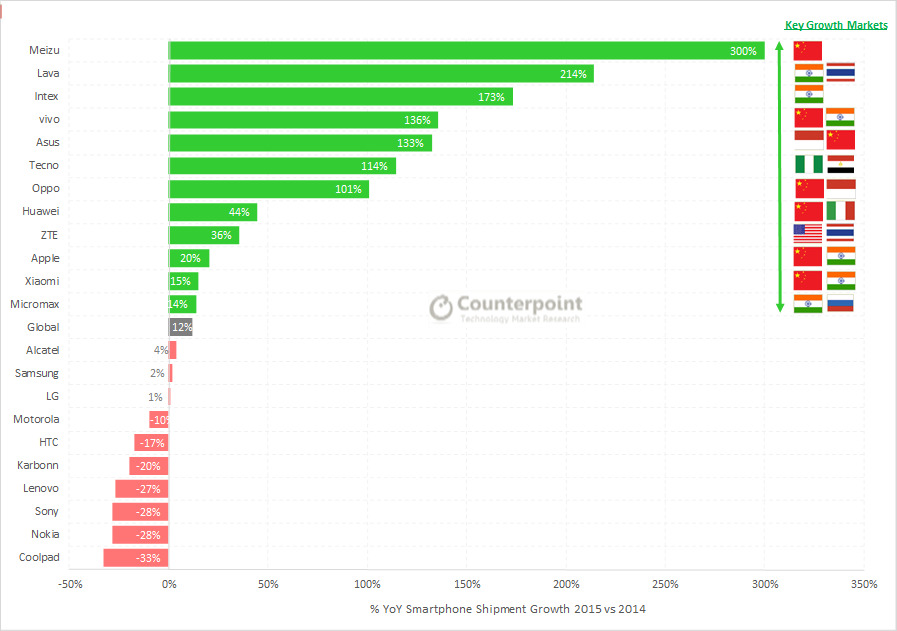


 Malcolm Owen
Malcolm Owen
 Andrew Orr
Andrew Orr
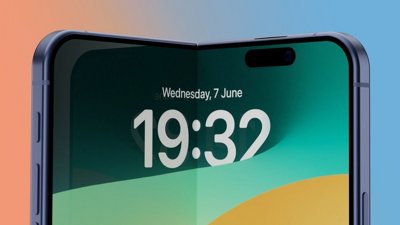
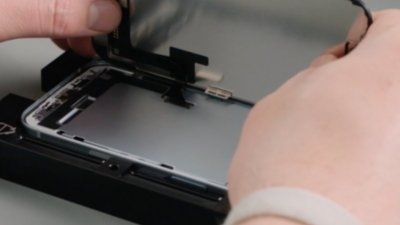
 William Gallagher
William Gallagher
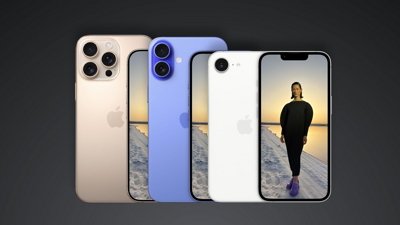

 William Gallagher and Mike Wuerthele
William Gallagher and Mike Wuerthele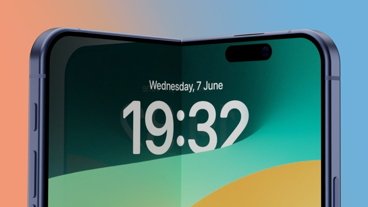
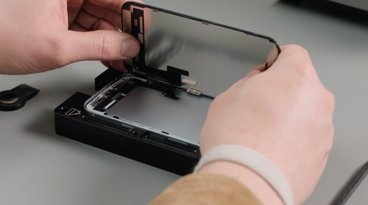
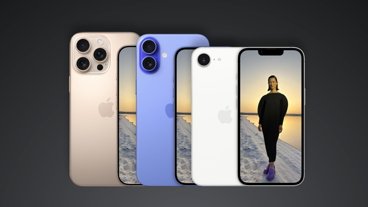
-m.jpg)






26 Comments
Let's see a chart showing total numbers sold instead of % growth year over year! This story is very misleading without that sort of chart!
AppleInsider
Hasn't it been reported multiple times on this site that Apple takes home well over 90% of global smartphone profits? How then does it take 20 companies to get 85%?
"More established brands like Asus, Huawei, and ZTE also recorded impressive numbers, though far lower than their smaller competitors." Not true at all. Asus went from 8.5 million to 20 million and began to be a real player in the U.S. and Europe for the first time (at least among Android enthusiasts). Huawei went from 74 million to 107 million. I will grant you Oppo, but the other players like Meizu, Lava (sold primarily in India), Intex (again India) simply went from 2 million to 6 million or something like that; huge increases over small bases. "The shift in marketshare has come at a cost for former heavyweights like Motorola, HTC, Lenovo, Sony and Nokia, which all saw shipments contract by more than 10 percent." Motorola was never a heavyweight. Motorola-Lenovo's troubles were primarily due to weakness in China, and Lenovo fumbling with supply chain and marketing issues that cost them big in India and Latin America. HTC, the only "major" smartphone maker whose main business is smartphones and related accessories, is simply too small for effective R&D and marketing; hence too small to survive. They've basically released the same phones 3 years in a row and have seen the competition rip off their best features in and otherwise surpass them. They need to find a graceful, face-saving way of "merging" with a South Korean or Taiwanese company that will allow them to retain their brand name and most of their people Best scenario for merger would be Asus, Razer, Nvidia or Acer ... worst would be LG or Samsung, or pretty much anyone in mainland China. If they are smart and get out now, they can negotiate the former. If they are dumb, then a mainland China company like Xiaomi or Huawei will scoop them up to get their patents and U.S./European carrier and store channels. Sony is stupid. They produce great, beautiful phones and tablets that cost way too much and that they do not advertise outside of Japan. (Other companies are buying the components that Sony puts in their phones, like cameras and screens, to put in their own phones and are outselling Sony.) They need to completely revamp their pricing/marketing strategy. As for Nokia: their exclusivity contract with Microsoft FINALLY expires soon, so they are going to re-enter the smartphone market this year, except this time with Android devices that they should have sold from the beginning, instead of allowing a former Microsoft executive to sell them on the idea of becoming Windows Mobile-exclusive as a differentiator among the "other-than-Apple" smartphones. (In their defense, lots of analysts predicted that Windows Mobile would drive Android out of business by 2012 and have a bigger market share than Apple by now. Then again it isn't a defense at all, because EVERYONE ELSE including Samsung, LG, HTC etc. made both Android AND Windows phones to see which one would sell, which allowed them to drop the one that failed ... or just keep selling both if both succeeded. So, Nokia was just dumb.) Initially, though, they will just be budget and (hopefully) midrange devices sold primarily in Asia and manufactured by either Foxconn (who makes their Nokia N1 Android tablets, which have had some success in China and India but for now legally can't be sold or even resold by resellers in America or Europe thanks to Microsoft) or Micromax. Also, might want to check these out. This isn't just clickbait from the Apple bashers. They are just 2 of many sources that have been reporting this for the last 36 hours or so, and they are all using data from several sources to report the same news: Apple market share declined in every market but China. Cook's statement that record numbers of people are switching from Android to iOS is true ... but he fails to mention that even more people are switching from iOS to Android. http://news.softpedia.com/news/apple-s-ios-share-nosedives-across-the-world-as-android-s-domination-broadens-499494.shtml http://news.softpedia.com/news/apple-s-ios-share-nosedives-across-the-world-as-android-s-domination-broadens-499494.shtml